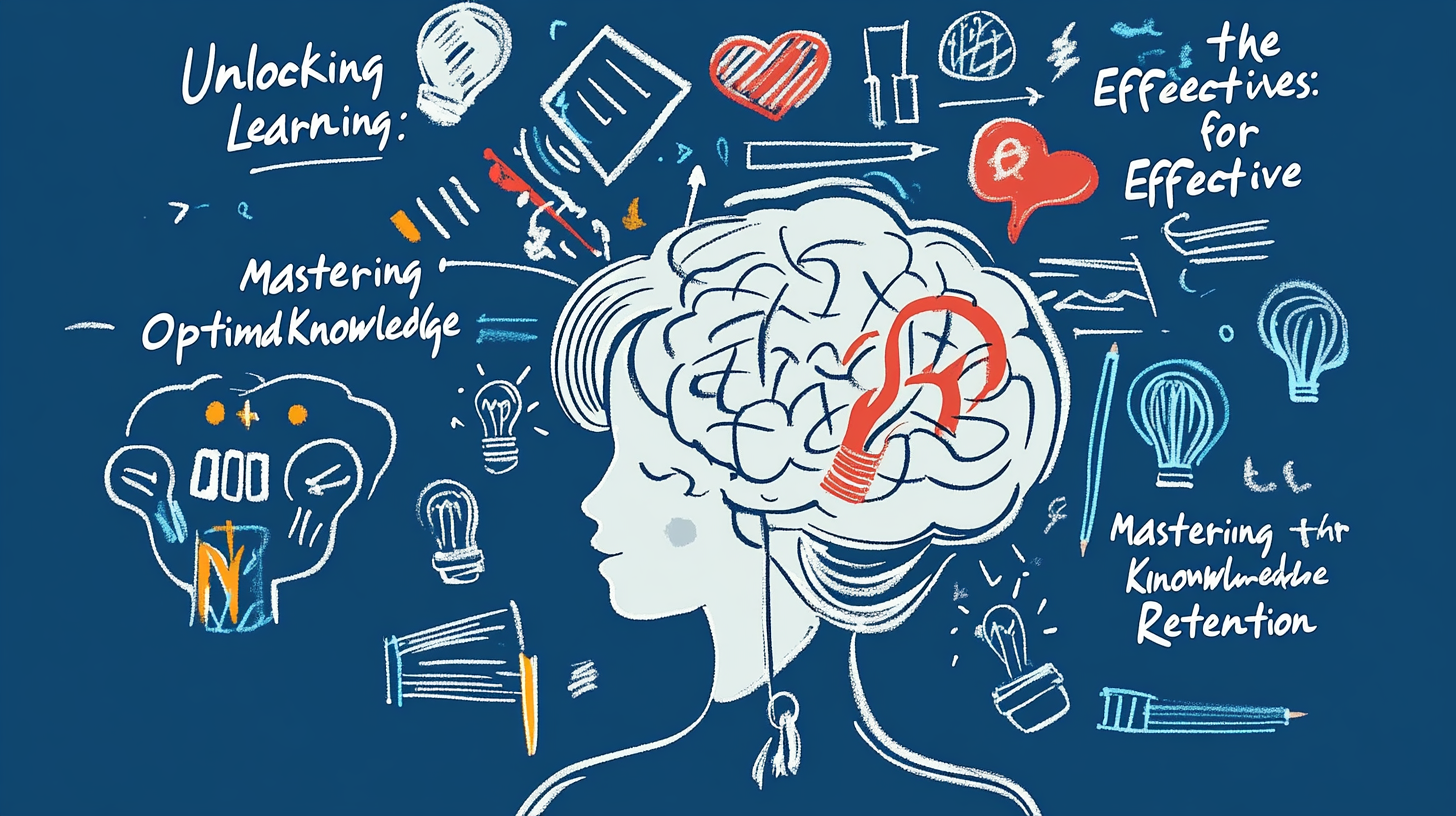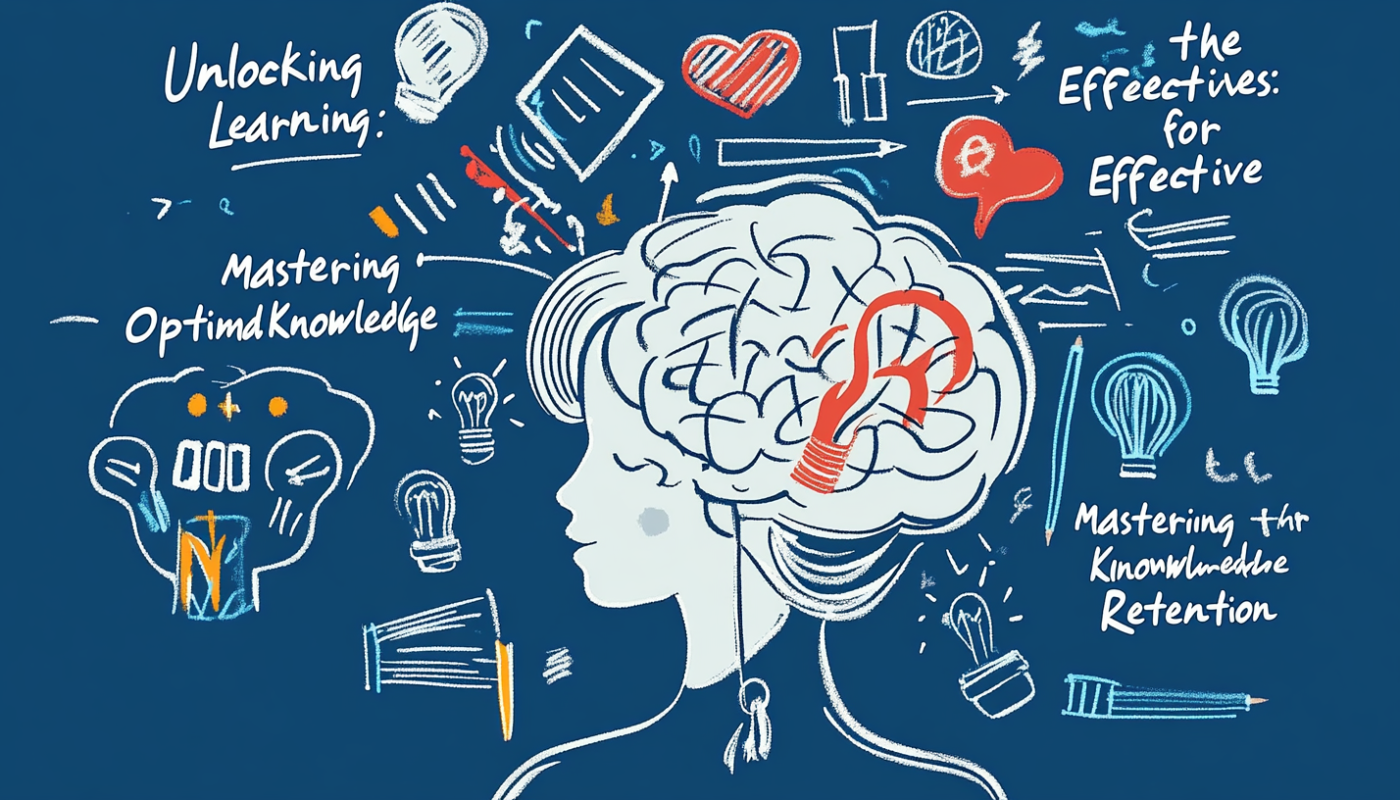Unlocking the Secrets of Effective Learning: Mastering Techniques for Optimal Knowledge Retention
Learning is a lifelong process that allows us to acquire new skills, expand our knowledge, and grow as individuals. However, not all learning experiences are created equal. Some people seem to effortlessly absorb information, while others struggle to retain even the simplest concepts. The key to effective learning lies in mastering techniques that optimize knowledge retention. In this article, we will explore some of these techniques and unlock the secrets to becoming a more efficient learner.
1. Active Learning: One of the most effective ways to retain information is through active learning. Instead of passively listening or reading, actively engage with the material. Take notes, ask questions, and participate in discussions. By actively involving yourself in the learning process, you create connections in your brain that enhance memory and understanding.
2. Spaced Repetition: Spaced repetition is a technique that involves reviewing information at increasing intervals over time. Instead of cramming all the material in one study session, space out your learning sessions. This technique allows your brain to consolidate and reinforce the information, leading to better retention in the long term.
3. Chunking: The human brain has a limited capacity for processing information. To overcome this limitation, use chunking techniques to break down complex information into smaller, more manageable chunks. By organizing information into meaningful groups, you can improve comprehension and retention.
4. Visualization: Our brains are wired to process visual information more effectively than text or abstract concepts. Take advantage of this by using visualization techniques to enhance learning. Create mental images, diagrams, or mind maps to represent the information you are trying to learn. This visual representation will make it easier for your brain to encode and retrieve the information later.
5. Teach Others: The best way to solidify your understanding of a topic is by teaching it to others. When you explain concepts to someone else, you are forced to organize your thoughts and articulate the information clearly. This process strengthens your own understanding and helps you retain the knowledge for a longer time.
6. Practice Retrieval: Retrieval practice involves actively recalling information from memory rather than simply reviewing it. This technique has been proven to enhance long-term retention. Instead of relying solely on re-reading or re-watching materials, challenge yourself to recall the information without any prompts. This practice strengthens memory and improves your ability to retrieve information when needed.
7. Use Multisensory Approaches: Engaging multiple senses during the learning process can enhance memory and retention. Incorporate visual, auditory, and kinesthetic elements into your learning experience. For example, you can watch educational videos, listen to podcasts, and engage in hands-on activities related to the topic. By stimulating different senses, you create more connections in your brain, leading to better retention.
8. Get Enough Sleep: Sleep plays a crucial role in memory consolidation. During sleep, the brain processes and stores newly acquired information. Lack of sleep can impair memory and learning. Make sure to prioritize quality sleep to optimize your learning and retention abilities.
In conclusion, effective learning is not just about the amount of time spent studying, but also about the techniques used to retain information. By incorporating active learning, spaced repetition, chunking, visualization, teaching others, retrieval practice, multisensory approaches, and prioritizing sleep, you can unlock the secrets to optimal knowledge retention. Embrace these techniques, and watch your learning abilities soar to new heights.



